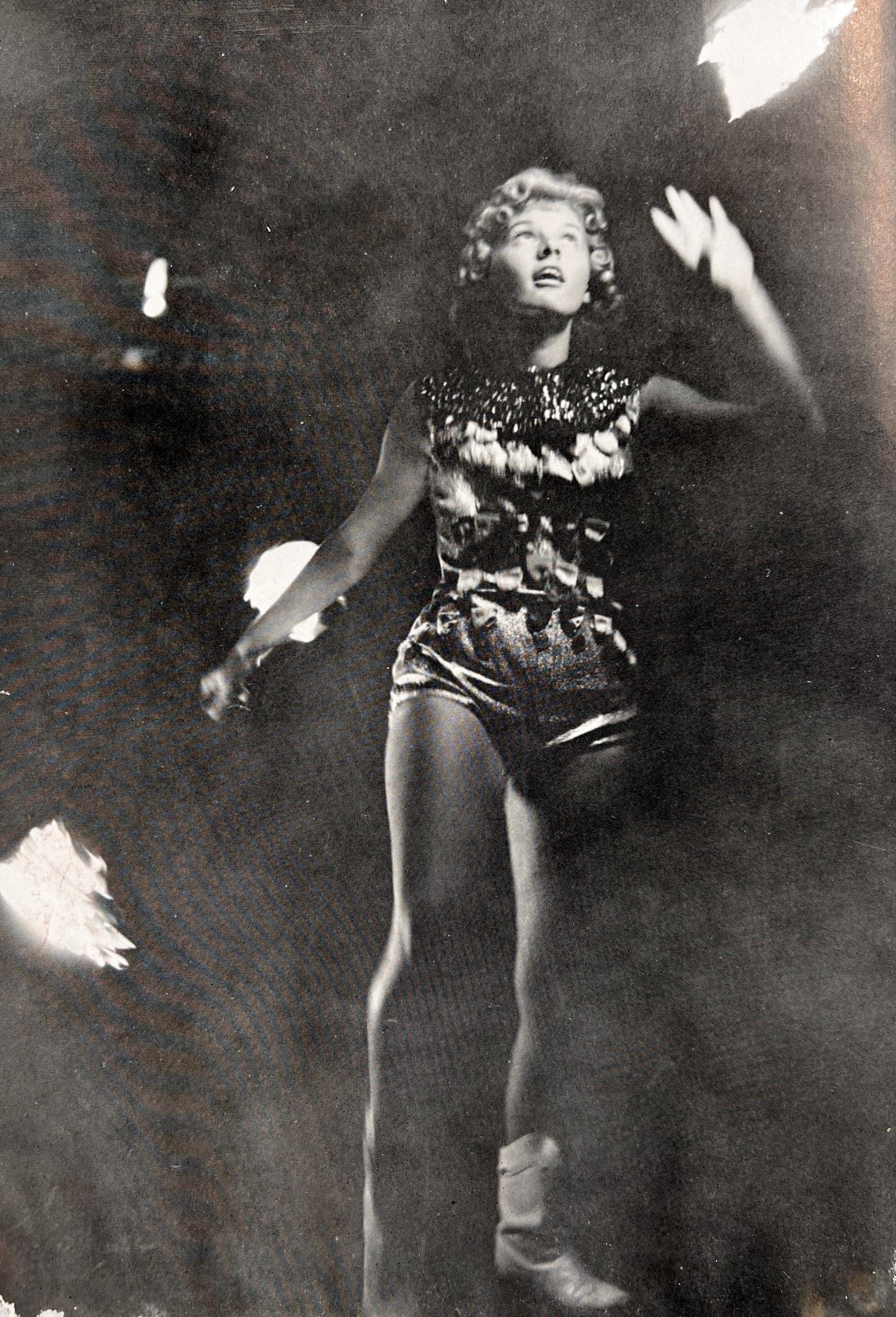I'm Never Going to Write Again
Not Believing in Yourself, Abandoning Your Art: The Doubt Devil

This is my tale, my ramble, my revelation of truths I’ve long secreted in bruised places lest I get a reputation.
Let’s start at the beginning.
When I was in second grade (yes, you heard me), the elementary school held a contest among second graders: Write an essay about why we love the American flag. Ta-daa! I won. But the win was reversed because an adult decided that a second grader could not have possibly written whatever drivel I’d penned (I’m pretty sure it rhymed). This horrible behavior on the part of an anonymous adult(s) did not stop me from writing, but it did enforce my growing suspicions of people in authority and their demands for mediocrity.
Over the years, I wrote like a child possessed—poems, stories, cartoons, plays, songs. If it involved storytelling, I dabbled. Despite the violence and poverty that defined my childhood, when I put pen to paper, I grew wings.
But in undergrad, something horrible happened: Literary Territorialism. The poetry and fiction professors—long at war with each other—treated me like Solomon’s baby, each claiming me for their own, metaphorically ripping me in two, neither understanding that a person could be a prose writer and a poet. Hell, I could twirl a fire baton while spitting rhymes. But the two professors, enemies unto death, remained staunch in their genre nationalism, fire batons or no fire batons.
When I went to graduate school, I again wrote poetry and prose, won awards in both, was published in both until the head of the department (self-important male poet) said during a midterm conference (not sure why we were having one since he wasn’t my professor), something to the effect of You’re poetry is meh. Concentrate on your stories.
Gutted, I haven’t written a poem since.
I wrote a novel in 2016 titled Stone by Stone. A terribly-important-friend-in-my-literary-life (who is a very nice person, by the way) had nothing positive to say about it. In fact, the manuscript was so bad, my friend couldn’t read it, couldn’t get past more than a few pages. It was as if I’d forgotten how words work, that me and my hand of thumbs could only clack out meritless gibberish. I’d read from the novel at public events and shared it with trusted readers who were published writers (looking at you, Crystal Wilkinson). Everyone loved it, except for the friend who seemed intent on repeatedly thrusting their workshop-hewn pitchfork into my heart and soul. Perhaps they didn’t realize the harm they were inflicting, or maybe they did. Maybe they relished the sight of blood. Whatever. The truth is, I was a willing victim, grateful even: My friend is simply trying to turn me into a REAL writer, after 8 published novels and a movie and more. All those publishers and readers must have been idiots, said Stockholm Syndrome Me.
Eventually, adrift in the I Suck Sea, I perished. I doubted everything about myself, most supremely my life as a writer. I had to come to terms with what looked like facts: I was a fraud. Yes, I’d been defrauding readers, publishers, agents, editors, libraries, conference hosts, and my family since 1998.
There was nothing left to do: I buried the manuscript in my Word files never to be seen again.
Until this morning.
I don’t know how it happened—maybe aging, maybe time, maybe exhaustion with my internalized Doubt Devil (again, the intersections!)—but in the past couple of months, I’ve started to bloom. I’ve started saying EXACTLY what I think, which is dangerous. But it’s also liberating. This has spawned a realization that might come naturally to most of you but not to me—this, the legacy of being an abused kid: If I don’t stand up for myself, no one will do it for me. If I don’t BELIEVE in my own accomplishments and talents, why would anyone else? Growing up, I heard adults say these sorts of things all the time. I’ve had shrinks say them to my face. I’ve had friends repeat them so often it’s as if they are on an eternal rinse cycle. But until your bones have firmed up—and for some of us that takes decades—this rather pedestrian step-into-your-magnificence screed swirls like dead leaves on a stormy November day.
But this morning, as Hurricane Erin churned offshore, bringing with it a fresh breeze that took some of the sting out of summer’s triple digits, I opened my eyes to a feral thought that blew in like a gust that had been tapping at my window for years, trying with all its might to come in from the heat: Crack open Stone by Stone, Connie. Let’s see how bad it is.
So, I did. I read the first six pages as if they were written by some other writer, which is always a neat trick if you can do it. Stockholm Syndrome Me might have devolved into recriminations and self-blame: Why do you believe the Doubt Devils? Why take their opinions as gospel? Why, Connie, are you such a freaking nub?
But my liberated self rose above the self-blame trap. It marveled over sentences and word choice and tension and restraint and plot and setting and character. If I possessed the talent of levitation, that would have been me on the ceiling in a sequined ballgown dancing like Fred Astaire.
I’m fine-tuning a handful of plot points for The Direction of Last Things, the book I tremorously moved onto after I gave up on Stone by Stone. After “Direction” goes out on submission, I’m diving back into my abandoned novel, a book nearly destroyed by my dearth of self-worth.
To hold my feet to truth’s fire, I’m making a public promise: Eventually, Stone by Stone will see the light of day.
Here’s the pencil-sharp point of this ramble: Writers have to believe in their work even as they take in notes from trusted readers, whether those readers be friends, betas, agents, or editors. I’m always looking for ways to improve my work—that never ends—but to survive the process, you have to develop a strong inner core (think of it as your inner belly six-pack no one else sees). Yesterday, I spent two hours discussing “Direction” with my agent and she gave me terrific notes. I am jazzed and can’t wait to see where they lead. The notes didn’t destroy me. Far from it. The agent believes in the book and wants it to be the very best novel it can be. What a gift! You don’t want sycophants pirouetting down your margins or Doubt Devils stomping through your paragraphs. You want smart people willing to tell the truth and who have the gift of question-asking. Why does Sally Sue go to the roadhouse? Did she know he was the preacher before she met him behind the roadhouse? Why did the wolf have to die? Is it too obvious? Question-askers open up the closed windows of your imagination, if you let them.
A good rule in a game with few rules: Understand the quality of the notes being given. If they are dismissive, don’t succumb to the Doubt Devil. Rather, move on. If the notes are celebratory and rendered in what I like to call the Universal Creative Spirit, pay attention. Return to the page, carrying the advice deep within you. The notes do not mean you failed; they mean you are on the right path.
I’m not so deluded as to think I won’t ever again succumb to a Doubt Devil. But I’m learning to recognize the phenomenon. There’s no room in my personal or creative lives for someone who gas lights, knowingly or not. This is not a get-out-of-hearing-things-you-don’t-want-to-hear-card. It’s part of a complex strategy for surviving and thriving as a writer.
The great writer William Maxwell almost stopped writing and, like me, it was his own writing that convinced him to keep going. My dear friend, the writer Brad Watson who passed in 2020, was once feeling so terrible about a novel-in-progress that he started a fire and tossed the entire manuscript into the flames. As he stood there, morose, sipping a beer, watching the flames consume his book, he began reading pages not yet burned and realized, Hey, this is pretty good! He quickly retrieved from the fire all that he could.
I think many of us have been there, standing at that fire, feeling hang-dog terrible about our work. But know this: The fire doesn’t want your pages. Your readers do.
UPCOMING INKBLOSSOM EVENTS!
Virtual Fall Writing Retreat - September 19-21 via Zoom.
Santa Fe Writers’ Retreat and Conference - October 20-27 - Special Guests: Literary Agent Darlene Chan, Publishing Industry Guru Julie Trelstad, and Novelist Jo-Ann Mapson.





I love how you are always investigating and revealing the truth of being an artist and a writer in this often brutal world. From the moment I first started reading you, you have been an inspiration to me on this harrowing journey. Nothing but 💙💙💙for you.
Oh, dear Connie. This is just what I needed to read today. Thank you.